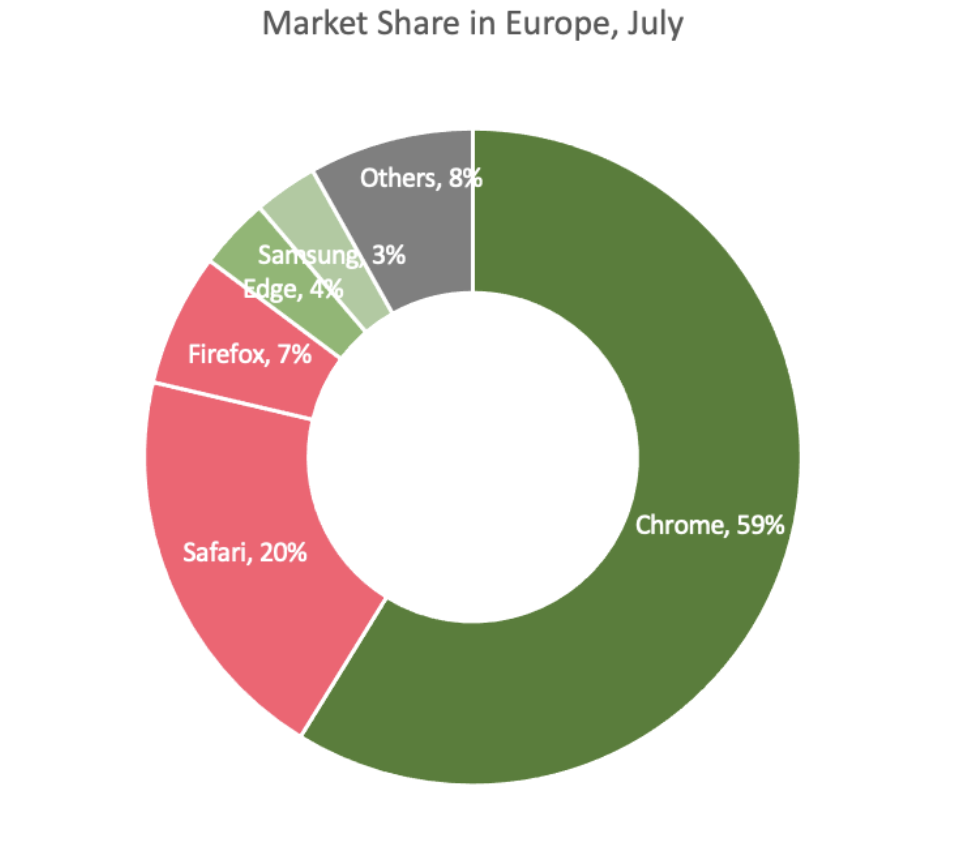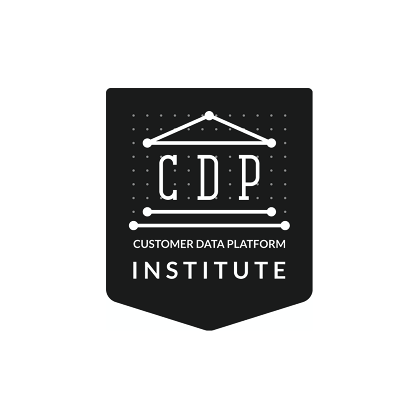Google delays third-party cookie deprecation
In the latest announcement from July 2022, Google has yet again extended the deadline for the deprecation of the third-party cookies support for Chrome. The phase out is supposed to start in the second half of 2024. This is already the second time they moved the deadline.
According to Google, they need more time to test their Privacy Sandbox – their solution for targeted advertising. Anthony Chavez, Vice President of Google’s Privacy Sandbox initiative, states in a blog post:
“The most consistent feedback we’ve received is the need for more time to evaluate and test the new Privacy Sandbox technologies before deprecating third-party cookies in Chrome […]”
The Privacy Sandbox is scheduled to be launched to the wide audience in Q3 2023. At this point, it’s unknown how the deprecation of third-party cookies in Chrome will impact advertisers or how effective the Privacy Sandbox is at targeting customers.
Even though this delay is supposedly giving everyone more time to test and prepare for the cookieless future, how much internet traffic is already happening in a cookieless environment?
The browser market
According to the usage stats, Chrome has the lion share of the market in Europe of around 59%. The other 41% are split by numerous players, most of which are actually blocking 3rd party cookies by default.
Safari first announced the ITP back in 2017, and the policy to block all 3rd party cookies came into action in 2020. Since then, marketers lost the ability to utilise 3rd party cookies in Safari, which is around 20% of all traffic.
Mozilla Firefox, with the overall market share of around 6.5%, has been blocking 3rd party cookies for a couple of years now. In 2019, Firefox introduced Enhanced Tracking Protection, which blocked predetermined types of 3rd party cookies, and then later moved to Total Cookie Protection that blocked all 3rd party trackers as well as fingerprinting scripts.
Privacy-first browsers like Brave have been blocking 3rd party tracking since inception.
Samsung Internet, Edge and Opera are not actively blocking 3rd party cookies.
Internet Users’ choices
From internet users’ point of view, concerns about data collection and data privacy are growing, and the possibility to refuse 3rd party cookies is seen favourably.
More and more users pay attention to their browsing sessions.
Not only users of Chrome, Samsung Internet, Edge, Opera and others can easily configure the browser settings to block all 3rd party cookies, but also AdBlocker plugins are currently widely used. According to a research by AudienceProject 37.5% of internet users are using some kind of AdBlocker, and around 20% of all sessions are blocked with a blocker tool.
A lot of AdBlockers not only prevent the ad scripts from being loaded, but also block 3rd party cookies altogether while leaving 1st party cookies intact.
Lastly, users can easily switch to Incognito mode to have a private browsing experience. While incognito mode might not currently block 3rd party cookies by default, depending on the browser, cookies are deleted after each browsing session which seriously diminishes the value of these 3rd party cookies.
What does this mean for the ad-tech world?
Even if 3rd party cookie deprecation is delayed in Chrome, a large portion of the internet traffic is already happening in cookieless environments. Therefore, it is immensely important for all industry players to start enabling alternative ways of addressability now not only to prepare for the future, but also to deal with the present. Cookieless is already here!
So, while the delay offers more time to test and prepare, it also increases the risk of missing out on the post-cookie era due to the lack of immediate urgency. Despite Google’s latest shift, advertisers and publishers shouldn’t delay their plans to develop and implement a cookieless future.
There are alternate solutions to 3rd party cookies which are already being tested and adopted by the industry.
Outside of the debate around contextual advertising vs fingerprinting vs cohorts, thereʼs one piece of advice for the cookieless future thatʼs been consistent almost anywhere: build up a base of first-party data. Forward-thinking publishers and advertisers already shifted their ad strategies, implementing alternative solutions, focusing more and more on zero and first-party data.
This requires generating high-quality customer data through different marketing activities (such as loyalty programs, own apps, lead generation campaigns, or much more), that, if well orchestrated, not only would help in replacing third-party cookies, it is also a great way of levelling up the data collection game, to get more precise data which leads to better targeting.
This is where a Customer Data Platform (CDP) comes in, helping to collect, unify and segment data from any number of platforms and silos where it might currently be stored.
Another promising way to go is the Universal ID solutions, singular identifiers that recognise users throughout a digital marketing ecosystem and allow information associated with the user to be passed on to approved partners within the ecosystem, such as ID+.
Conclusions
The deprecation of third-party cookies is still very much on the horizon and the effectiveness and reach of third-party cookies will continue to decrease. In Europe, we already see higher opt-out rates for publishers, after the implementation of the reject all cookies option.
But despite its importance and its urgency, the post-cookie world is still alarmingly out-of-focus. There are dozens of potential replacements for third-party cookies on the table, each one with unique advantages and disadvantages, meaning that thereʼs no rulebook for moving forward, let alone a silver bullet to easily solve the problem.
As consumer privacy is paramount, implementing durable privacy-centric solutions remains the right way forward. We believe now is the time to test alternative solutions, prepare your infrastructure for a privacy-first world and prioritise building out your first-party data strategy.
For marketers, the message is simple: act now, because experimenting when there will be no other options, is a risky exercise.


































